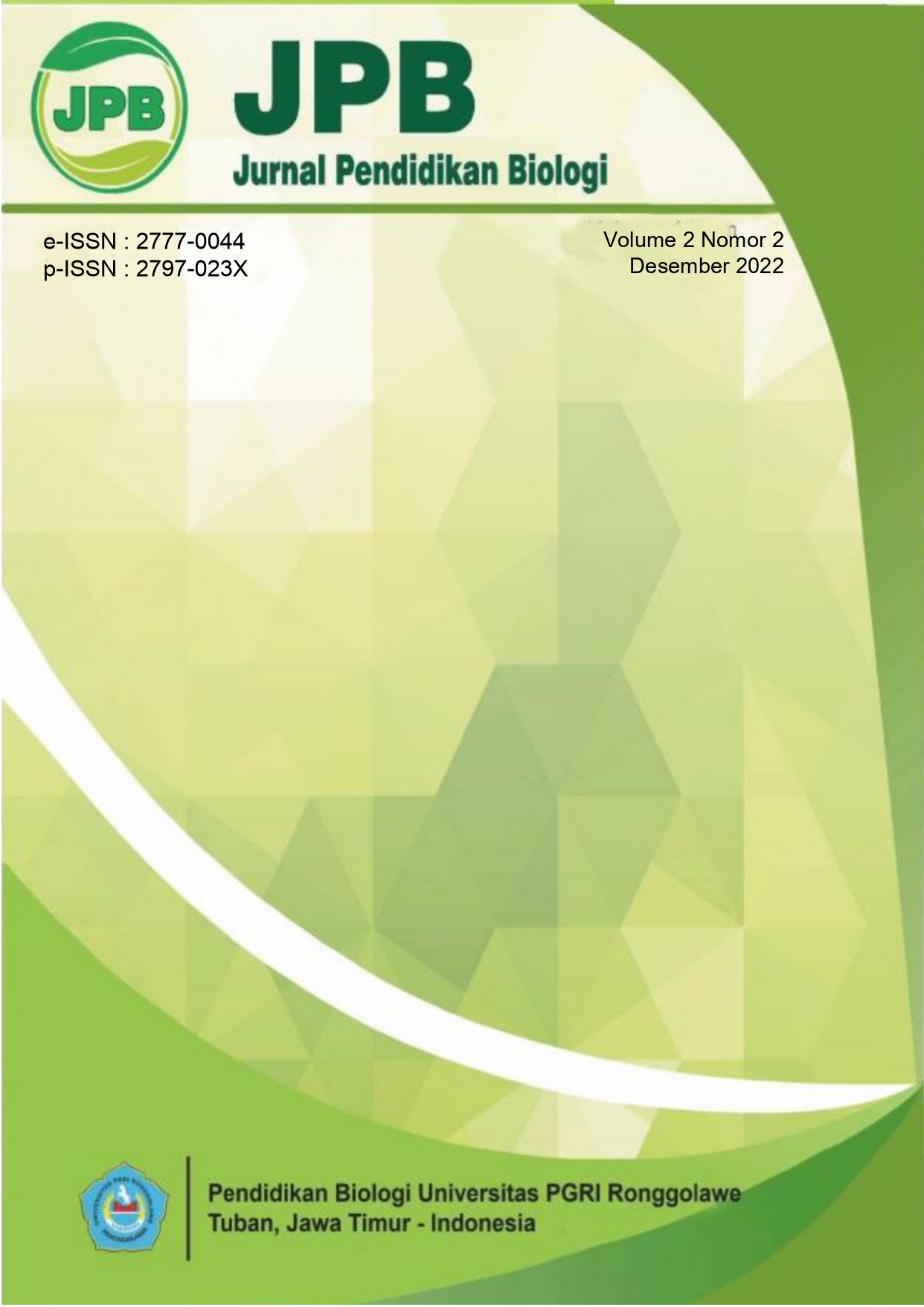PEMBELAJARAN BERBASIS STEM (SCIENCE. TECHNOLOGY, ENGINEERING, MATHEMATICS) PADA SISWA MADRASAH ALIYAH UNTUK MENINGKATKAN 21st CENTURY SKILLS
DOI:
https://doi.org/10.55719/jpb.v2i2.554Keywords:
science, technology, engineering, mathematics, biologyAbstract
The purpose of this research was to apply STEM-based learning to improve the 21st Century Skills of Madrasah Aliyah students. The subject of study is class X MA Nurul Huda Kragan Rembang, Central Java. The procedures research consists of the preparation, implementation, and presentation stages. The learning design used in this study is a quasi-experimental design with a nonequivalent control group design model. The STEM ability profiles studied are 1) Critical Thinking (providing connections between various scientific knowledge learned by students and real-life problems); 2) Creative (directing students to apply their knowledge through an engineering design process to create a technological solution to a problem); 3) Collaborative (proving that problem solving is possible by pairing machines, this modeling is then tested and the results will be evaluated whether the problem solving solution model is effective for solving the problem or not, if it is deemed ineffective then the design of the problem solving model is improved) t; 4) Communicative (able to calculate the impact that occurs when using the technology that has been made). After applyed STEM-based learning, the Critical Thinking skills of MA Nurul Huda Kragan students increased by 27.69%, Creative abilities increased by 12.00%, Collaborative abilities increased by 17.23%, and Communicative abilities increased by 36.92%.
Downloads
References
Avery, Z. K., & Reeve, E. M. (2013). Developing effective STEM professional development programs. Journal of Technology Education, 25(1), 55–69.
Bybee, R. W. (2013). The case for STEM education: Challenges and opportunities. NSTA press.
Gnagey, J., & Lavertu, S. (2016). The impact of inclusive STEM high schools on student achievement. AERA Open, 2(2), 2332858416650870.
Huda, I. A. (2020). Perkembangan teknologi informasi dan komunikasi (TIK) terhadap kualitas pembelajaran di sekolah dasar. Jurnal Pendidikan Dan Konseling, 2(1), 121–125.
Husna, A., & Suryana, B. (2017). Metodologi penelitian dan statistik. Jakarta: Badan PSSDM Kesehatan Kemenkes RI.
Ismayani, A. (2016). Pengaruh penerapan STEM project-based learning terhadap kreativitas matematis siswa SMK. Indonesian Digital Journal of Mathematics and Education, 3(4), 264–272.
Lahmami, H. (2020). Methodology of social science research, the case of the sociology of action in relation to values: Metodología de la investigación en ciencias sociales: la sociología de la acción en relación con los valores. Revista Electrónica Interuniversitaria de Formación Del Profesorado, 23(1).
Nugent, G., Barker, B., Welch, G., Grandgenett, N., Wu, C., & Nelson, C. (2015). A Model of Factors Contributing to STEM Learning and Career Orientation. International Journal of Science Education, 37(7), 1067–1088.
Patel, M., & Patel, N. (2019). Exploring Research Methodology : Review Article. International Journal of Research and Review, 6(3), 48–55.
Pendidikan, S. (n.d.). Prinsip dasar statistik.
Pertiwi, R. S., Abdurrahman, A., & Rosidin, U. (2017). Efektivitas lks stem untuk melatih keterampilan berpikir kreatif siswa. Jurnal Pembelajaran Fisika, 5(2).
Roberts, A., & Cantu, D. (2012). Applying STEM instructional strategies to design and technology curriculum. PATT 26 Conference; Technology Education in the 21st Century; Stockholm; Sweden; 26-30 June; 2012, 073, 111–118.
Santoso, S. H., & Mosik, M. (2019). Kefektifan LKS berbasis STEM (Science, Technology, Engineering and Mathematic) untuk melatih keterampilan berpikir kritis siswa pada pembelajaran fisika SMA. UPEJ Unnes Physics Education Journal, 8(3), 248–253.
Sari, N. F. (2021). Keragaman Genetik dan Abnormalitas Ikan Kakap Putih (Lates calcarifer Bloch, 1790) Tipe Liar dan Hasil Domestikasi. Universitas Hasanuddin.
Sartika, D. (2019). Pentingnya pendidikan berbasis STEM dalam kurikulum 2013. JISIP (Jurnal Ilmu Sosial Dan Pendidikan), 3(3).
Sugiyono. (2008). Metode penelitian pendidikan:(pendekatan kuantitatif, kualitatif dan R & D). Alfabeta.
Tiryaki, A., Caki, O., & Yaman, Y. (2019). The Effects of the Program Including Differentiated STEM Applications Based on the Parallel Curriculum Model on the Critical Thinking Skills, Creativity and Attitudes of Gifted and Talented Students. Vol, 8, 1226–1230.
Trilling, B., & Fadel, C. (2009). 21st Century Skills, Enhanced Edition: Learning for Life in Our Times. John Wiley & Sons.




